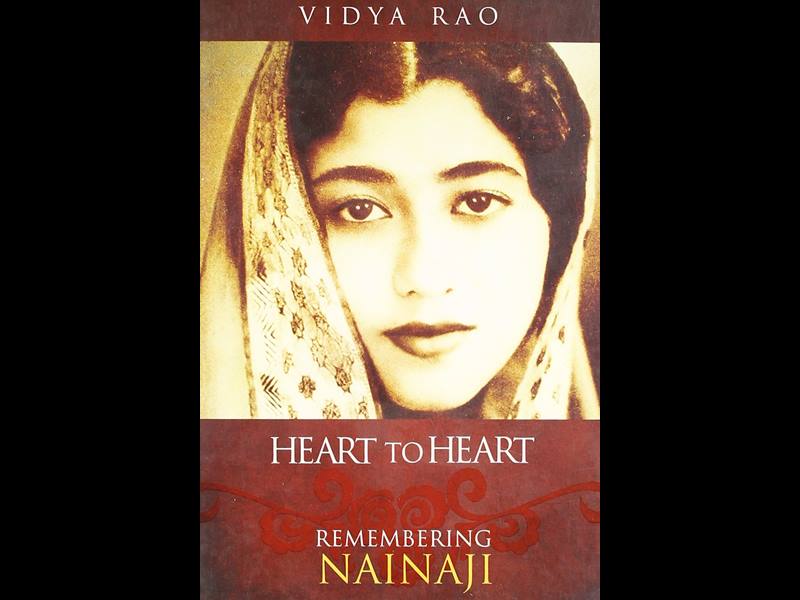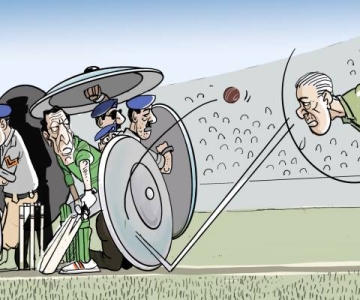My dear friend Vidya Rao’s labour of love is finally out. She has been working on this project for quite a while. Her book Heart to Heart: Remembering Naina Devi is a tribute to her teacher, Guru and inspiration who trained Rao as a singer..
Legendary singer, Naina Devi was born into a Bengali Brahmo Samaj reformist family in the early years of the twentieth century. A childhood replete with music, dance, theatre and social reform gave way to the grandeur and seclusion of the life of a young queen of the Kapurthala royal family of Punjab. Despite seventeen years of silence necessitated by the norms of a royal household, she came back to music and a glorious career as a singer, arts-administrator, teacher and patron, after the tragic death of her husband.
Heart to Heart, traces Naina Devi’s incredible story as she told it to her foremost disciple, Vidya Rao. Naina Devi’s story traces the changes in the world of Indian classical music, women singers and women in Indian society over the last century. Learning seena-ba-seena, heart to heart, in a seamless blend of music and life-lessons, Rao imbibed not
just a knowledge of her chosen form, Thumri, but a sense of the very being of her teacher.
The evocative narrative weaves back and forth between history and memory, past and present, and between Naina Devi’s voice and Rao’s own, to illuminate the power and beauty of music, the lives of these two women and of many others, of courage, pain, joy and love, and of the deep bond between Rao and her beloved Guru.
Here’s a detailed review published here
She uses words as if she is caressing the notes of a thumri or a dadra, the musical forms she has chosen to express herself. A proficient practitioner of the delicate art of singing Thumri and Dadra, Vidya Rao is also a writer, who mesmerises the reader with her rare sensitivity, great feel for words and unusual skill to weave a multi-hued tapestry with breathtakingly complex designs. When her book on the late Naina Devi, Heart to Heart: Remembering Nainaji ( Harper Collins), was released last week at the India International Centre, the audience made a pleasant discovery that she is a very articulate conversationalist too, who would lucidly contextualise the evolution of the form and content of Thumri and Dadra while answering questions posed by National School of Drama Director Anuradha Kapur.
Naina Devi was Vidya’s guru from 1986 till her death in 1993. She was one of those few individuals who were primarily responsible for promoting music and dance in post-Independence Delhi. Vidya has written a beautiful book that offers an absorbing narrative of Naina Devi’s life based on what she observed, heard and internalised while interacting with her almost daily for seven years. She has, as it were, offered guru dakshina to her guru. The book tells us nearly as much about its author as it does about her much-loved teacher.
Vidya began to learn music in her childhood that was spent in Hyderabad. Although I never consciously thought of becoming a professional singer, I was always very serious about music, she says. After doing her graduation in Madras (now Chennai), she joined the Delhi School of Economics to do M.A. in Sociology. It was in Delhi that she became a student of Professor B. N. Datta to learn classical music. She joined the Centre for Women’s Development Studies as a researcher and worked there for five years. It was singer Shubha Mudgal who suggested, rather cajoled her to learn from Naina Devi after Datta passed away. And thus began the exciting musical journey that saw the emergence of Vidya Rao, the performing artiste. While she later learnt from several maestros like Mani Prasad, Shanti Hiranand and Girija Devi, it was Naina Devi with whom she spent the maximum time and, in the course of her conversations, learnt both about music and life.
Naina Devi’s was an extraordinary life. At the age of 17, she was married to Ripjit Singh, youngest son of the Maharaja of Kapurthala. Widowed at 32, she distributed 300 acres of agricultural land among landless peasants, gave away her exquisite clothes and jewellery, moved to Delhi to lead a life of austerity, and started singing as Naina Devi so as to protect the dignity of her in-laws. Spending long hours with her while learning and talking has obviously given Vidya a rare insight into music and life and the way they influence each other.
Nainaji used to quote her guru, the great Thumri-Dadra singer Rasoolan Bai, who explained Thumri as sahuliyat‘, thereby meaning that it should be natural or sahaj. The same applies to life, Vidya reminisces. She recalls how easily and generously Naina Devi imparted knowledge while constantly encouraging the disciple. She was one of the most gracious persons I have ever met. She kept an open house where everybody was welcomed with affection. Famous as well as unknown musicians would come to her house almost every day because they loved and respected her. And, she was an encyclopedia of knowledge.
Vidya is writing her next book on Thumri and it is expected to come out pretty soon. Besides performing at national and international forums, she works as Editorial Consultant with Orient Blackswan publishers.She was an unusual, rather extraordinary, person. Linked to the princely state of Kapurthala by marriage, she made a deliberate choice of learning the art of the tawaifs and sought the company of the much-maligned courtesans. Her transformation was complete because the world knew her not by the name Nilina Sen given to her by her parents, but by her chosen name Naina Devi. As Naina means eyes, it also signified that she wanted to see the world with new eyes, with a new worldview, completely at variance with the one that she had inherited.
GLIMPSES OF NAINA
Nilina Sen was the granddaughter of the great nationalist leader and social reformer of the 19th Century, Keshub Chandra Sen. Her sister, Sadhona, had in a sense shown her the way by rebelling against the social conventions, marrying film director Modhu Bose facing all odds, and leading a turbulent life. Extraordinarily beautiful, famously talented film actress and infectiously vivacious Sadhona Bose was in a manner of speaking a role model for Nilina a role model both to be shunned as well as emulated.
When Nilina took another avatar as Naina Devi, she took it upon herself to come to the help of all kinds of musicians and dancers great, famous, unknown. She also emerged as an institution builder and contributed a great deal to consolidate the Shriram Bharatiya Kala Kendra, Sangeet Natak Akademi, All India Radio and Doordarshan.
Her singing may be forgotten, but her selfless service to further the cause of music and musicians can never be.
Links where the book can be found:
http://www.infibeam.com/Books/



